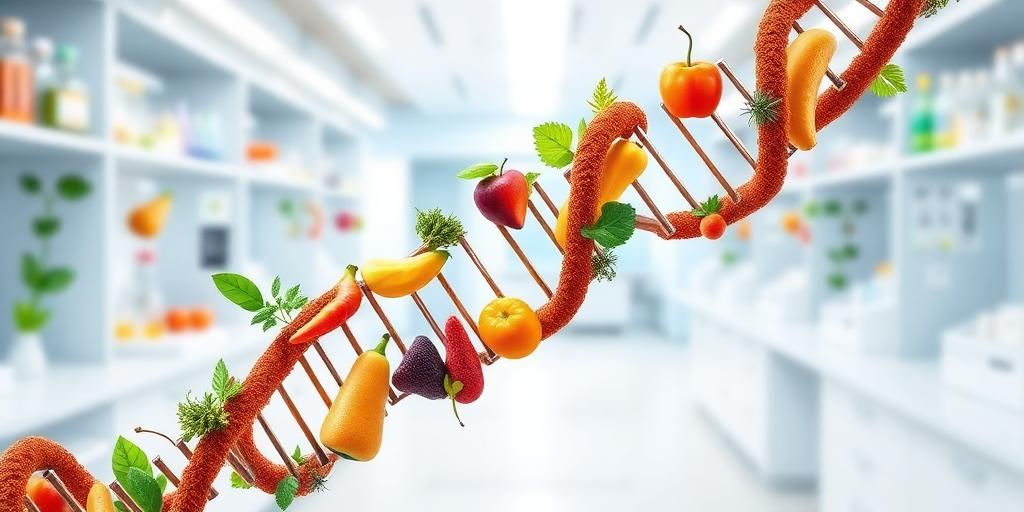Personalized Nutrition Based on Genetics: The Future in 2025? (India & World)
The convergence of genetics and nutrition is paving the way for a revolutionary approach to personalized dietary recommendations. By understanding an individual’s genetic makeup, it may become possible to tailor nutrition plans that optimize health, prevent disease, and enhance overall well-being. This article explores the potential of personalized nutrition based on genetics, examining its current state and future prospects, particularly in India and globally, with a focus on the anticipated landscape in 2025.
Understanding Personalized Nutrition
Personalized nutrition, also known as nutrigenomics, leverages an individual’s genetic information to provide tailored dietary advice. Genes influence how individuals metabolize nutrients, respond to different foods, and are predisposed to certain health conditions. By analyzing these genetic variations, healthcare professionals and nutritionists can create customized eating plans that address specific needs and vulnerabilities.
The Current State of Nutrigenomics
Currently, nutrigenomics is an emerging field with a growing body of research supporting its potential. Several companies offer genetic testing services that analyze specific genes related to nutrition, such as those involved in:
- Vitamin Metabolism: Genes that affect how the body processes vitamins like B12, vitamin D, and folate.
- Fat Metabolism: Genes influencing the metabolism of saturated and unsaturated fats, and their impact on cholesterol levels.
- Carbohydrate Metabolism: Genes affecting how the body processes sugars and starches, influencing blood glucose levels.
- Detoxification: Genes involved in the body’s detoxification processes, influencing the response to environmental toxins.
While the science is promising, it’s essential to recognize that nutrigenomics is not yet fully integrated into mainstream nutrition practices. Many genetic tests provide insights, but interpreting the results and translating them into actionable dietary advice requires expertise.
Nutrigenomics in India: Opportunities and Challenges
In India, the concept of personalized nutrition is gaining traction, driven by increasing awareness of preventive healthcare and the rising prevalence of lifestyle-related diseases. However, several challenges need to be addressed for its widespread adoption:
- Genetic Diversity: India has a diverse population with significant genetic variations. More extensive research is needed to understand the specific genetic profiles and their impact on nutritional needs within different regional and ethnic groups.
- Data Privacy and Regulation: Clear guidelines and regulations are necessary to protect individuals’ genetic data and ensure the responsible use of nutrigenomic information.
- Cost and Accessibility: Genetic testing can be expensive, making it inaccessible to many people. Efforts are needed to reduce costs and make these services more affordable.
- Education and Awareness: There is a need to educate healthcare professionals and the general public about the potential benefits and limitations of nutrigenomics.
The Future in 2025: Predictions and Possibilities
Looking ahead to 2025, personalized nutrition based on genetics is likely to become more sophisticated and integrated into healthcare practices. Several key developments are anticipated:
- Advanced Genetic Testing: Genetic testing technologies will become more advanced, offering comprehensive analysis of a wider range of genes related to nutrition and health.
- AI-Powered Analysis: Artificial intelligence (AI) will play a significant role in analyzing genetic data and providing personalized dietary recommendations. AI algorithms can integrate genetic information with other data, such as lifestyle, medical history, and environmental factors, to create highly tailored nutrition plans.
- Integration with Wearable Devices: Wearable devices, such as fitness trackers and continuous glucose monitors, will provide real-time data on an individual’s physiological responses to food. This data can be integrated with genetic information to fine-tune dietary recommendations.
- Expansion of Telehealth: Telehealth platforms will facilitate the delivery of personalized nutrition services, making it easier for individuals to access expert advice from nutritionists and healthcare professionals remotely.
- Focus on Disease Prevention: Personalized nutrition will be increasingly used for disease prevention, particularly for conditions such as diabetes, cardiovascular disease, and obesity. By identifying genetic predispositions, individuals can take proactive steps to modify their diet and lifestyle to reduce their risk.
Global Trends in Personalized Nutrition
Globally, several trends are shaping the future of personalized nutrition:
- Research and Development: Increased investment in research and development is leading to new discoveries about the interplay between genes, nutrition, and health.
- Regulatory Frameworks: Governments and regulatory agencies are working to establish guidelines and standards for nutrigenomic testing and services.
- Consumer Demand: Growing consumer interest in personalized health solutions is driving demand for nutrigenomic products and services.
- Collaboration: Collaboration between researchers, healthcare professionals, and industry stakeholders is essential to advance the field and ensure its responsible implementation.
Conclusion
Personalized nutrition based on genetics holds immense promise for improving health and preventing disease. While challenges remain, particularly in India with its diverse population, the future looks bright. By 2025, advancements in genetic testing, AI, wearable devices, and telehealth are expected to make personalized nutrition more accessible, affordable, and effective. As the field continues to evolve, it’s essential to address ethical considerations, protect data privacy, and ensure that nutrigenomic information is used responsibly to benefit individuals and society as a whole.
